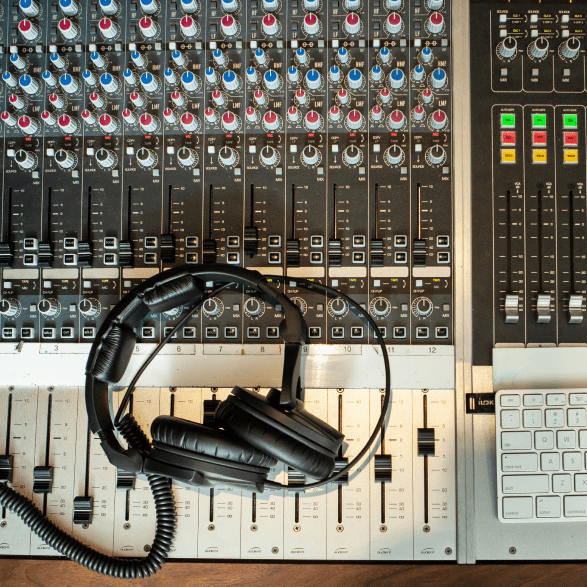
Voices Is Your Source for Audio Engineering Jobs
Audio engineering is a versatile career path that leverages equipment and machinery to record, mix, reproduce, and synchronize voices, music, and sound effects. These professionals dedicate their craft to optimizing the production for musical recordings, movie productions, video games, live shows, and more.
What Does an Audio Engineer Do?
Audio engineers, sometimes referred to as audio equipment technicians or sound engineering technicians, perform key functions. These responsibilities and duties include:
- Regulating sound quality and volume levels
- Eliminating unwanted noises and sounds
- Partnering with musical performers and producers to create meaningful sound
- Delivering insights and recommendations for live productions
- Overseeing, repairing, and maintaining sound equipment
- Positioning microphones for ambient sound
Audio engineers can work for a variety of employers. Radio stations, television stations, musical venues, sports arenas, musical artists, and other production companies are all in need of audio engineers. The work environment depends on the type of project or work being performed.
How Do You Become an Audio Engineer?
Audio engineers typically gain experience through postsecondary vocational education, but most of the critical learning for audio engineering happens on the job.. Apart from the technical skills gained through hands-on experience, some of the top soft skills needed include:
- Problem-solving – engineers need to get creative when addressing repairs for equipment malfunctions
- Verbal and written communication – engineers must have superior speaking and listening skills to complete projects with others
- Monitoring – engineers need to constantly attend to sound quality and volume levels
How to Find Audio Engineering Jobs
Voices is the ultimate location to find audio engineering jobs and set you on your successful career path. We constantly post opportunities with high-growth potential, such as audio mastering jobs, audio production jobs, and positions for audio engineers. Voices’ people-driven creative service marketplace aligns your career aspirations with creative teams looking for music, audio production, voice over, and translation services.
Voices delivers an innovative bridge between creative networks and top sound designer talent across the world. Sound designers and top talent can browse through a variety of diverse jobs within the industry. Job types that call for audio engineering skills include:
- Studio engineer – collaborate with studio producers to create quality sound and music
- Game & Audio Design Engineer – utilize sound engineering and technology to enhance a video game’s sound effects
- Mix Engineer – dedicate meaningful time to combining multiple tracks to build a newer, better track
- Mastering Engineer – involves refining a mix engineer’s results to complete the final sound product
- Assistant Engineer – serve as apprentices to studio engineers and perform work within the studio
- Live Sound Engineer – assists with live events to ensure optimal sound quality and delivery for the attendees
- Monitor Engineer – facilitates the live sound engineers, enabling performers to hear themselves at events
- Systems Engineer – oversees and monitors the whole sound experience for live performances, including the management of monitor engineers, live sound engineers, and other assistants



